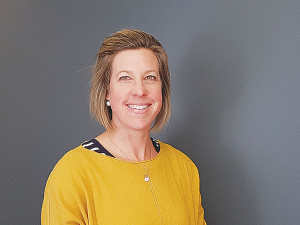Rangitīkei farmers take lead in water quality monitoring
Rangitikei Rivers Catchment Collective (RRCC) chairperson Roger Dalrymple says farmers in his region are taking a national lead in water quality awareness and monitoring.
 The Rangitikei Catchment Collective is an umbrella for 17 sub-catchment groups, says coordinator Louise Totman.
The Rangitikei Catchment Collective is an umbrella for 17 sub-catchment groups, says coordinator Louise Totman.
Catchment projects need to be farmerled, according to Louise Totman, who coordinates the Rangitikei Rivers Catchment Collective.
Totman says the decision to join the collective needs to be a farmer-led initiative on behalf of the sub-catchment group.
The Rangitikei collective is an umbrella for 17 sub-catchment groups, covering 700,000ha across the Rangitikei, Turakina, and Whangaehu river catchments. Recently it received $910,000 in Government funding.
“We don’t do a big push to get these groups up and running,” she told Dairy News.
“Obviously, we’ve had a few that have been going for two to three years. So, we’ve only started off with a small number and it’s probably only through word of mouth that other groups have jumped on board.
“We support and we encourage them but we don’t run their group. So, it needs to have that enthusiasm of a leader or two leaders that are going to get that ball rolling and keep it rolling,” she says.
“You can’t get everybody,” she says. “You can’t make them but hopefully they’ll catch wind of the opportunities that the members are having within that group and they might realise that they’re missing out on something.”
Totman says the collective work on several projects but the biggest one is monthly water testing.
So far, she says the collective has spent approximately $60,000 on the water testing alone.
“We’re undertaking that every month and every month we’re doing about 64 different sites across that area.”
Totman says the funding will go towards creating workshops at field days and getting experts in to talk to catchment group members.
“We’re sort of building up towards the next two and a half years of spending that money that we’ve been allocated.
“So, up until now, it’s all just been sub-catchment projects but probably not on a catchment scale,” she says.
Totman says that all of the farmers within the sub-catchment groups have a goal of ensuring that no cattle find their way into waterways.
“Up here we’re really lucky that we do have the SLUI [Sustainable Land Use Initiative] plans, they are all funded by Horizons if you’re on the right country for it.
“It’s that most at risk erodible hill country, but we’re really lucky that most of the farmers in these sub-catchment groups… have already got these plans.”
Additional tariffs introduced by the Chinese Government last month on beef imports should favour New Zealand farmers and exporters.
Primary sector leaders have praised the government and its officials for putting the Indian free trade deal together in just nine months.
Primary sector leaders have welcomed the announcement of a Free Trade Agreement (FTA) between India and New Zealand.
Dairy farmers are still in a good place despite volatile global milk prices.
Legal controls on the movement of fruits and vegetables are now in place in Auckland’s Mt Roskill suburb, says Biosecurity New Zealand Commissioner North Mike Inglis.
Arable growers worried that some weeds in their crops may have developed herbicide resistance can now get the suspected plants tested for free.
President Donald Trump’s decision to impose tariffs on imports into the US is doing good things for global trade, according…
Seen a giant cheese roll rolling along Southland’s roads?